The Ultimate Guide To World War 2 Records
UPDATED October 2024
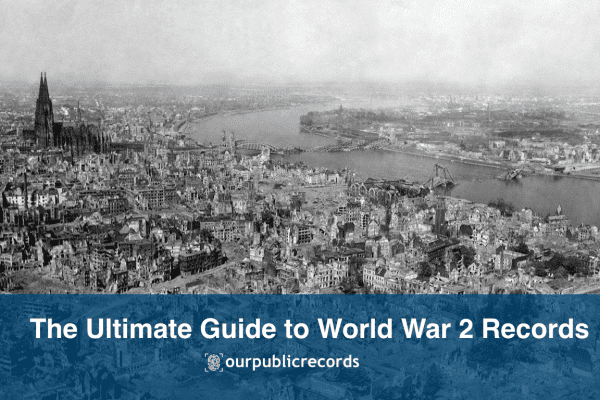
Introduction to World War II Records
Importance of World War II records for genealogy research
Because the war was such a major event in world history, many people all over the globe can trace their ancestry to someone who aided in the war effort. In the United States especially, it’s not uncommon to have an older family member to have served in the war on either front, or at least helped out at home in our many factories and social programs.
Speaking of social programs, it was around this time that many federal institutions were put in place to better assist American citizens. This includes social security, more comprehensive income tax recording, and the census.
For many families in America, military records are some of the oldest recorded documents they have regarding their ancestors, as record keeping wasn’t as comprehensive or well funded before the war. Additionally, many refugees immigrated from Europe and other war torn nations during the war. Immigration documents can help descendants of those refugees find out more about their ancestors, including which nations they had to flee and why.
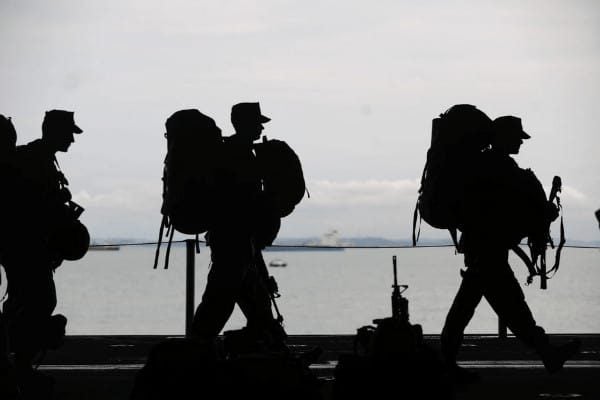
You can find records and information about anyone who served in World War 2 when you know where to look.
Overview of the types of records available
Most records you’ll be able to find regarding those who served in World War 2 come from the military itself. This includes service records, draft records, payroll records, unit histories, soldier home documents, and veteran organization records.
Being a massive branch of the United States during a time when combat and information was of the utmost importance, records regarding military activity are typically kept with meticulous accuracy. It was important for the US military, as well as other nations’ armed forces, to keep track of their soldiers as to know who was fighting which battle and who to alert in the event of a death.
In addition to military records, you may be able to find other documents regarding a family member who served or aided in the war effort, like a payroll document for a factory that made supplies for the army or the death certificate of a casualty.
Immigration documents can also help you figure out what country your ancestors are from and if they had to flee as a refugee or immigrated to serve on the battlefield. These can also help you track down and learn more about family members if they lived in another country for generations before the war.
Military Service Records
Overview of military service records and their contents
Military service records are the different types of documents kept by the armed forces in order to keep track of and record the stories of those who’ve served. Records like this have been kept just about since the founding of the US military, though they became far more comprehensive and accurate in the early and mid 20th century.
Service records can tell you when a particular person enlisted, was drafted, what assignment they had, what platoon or branch they were in, their awards and medals, any disciplinary actions they had to undergo, when and why they were discharged, and much more. You can’t get access to any records of a person currently serving, but since World War 2 ended in 1945 and most who fought are no longer in active duty, there should be no problem gaining access to the records of an ancestor who served.
Source: archives.gov
Exploring different types of records, such as service files, enlistment records, and discharge papers
There exist many different types of records kept on those who served during World War 2. Most of the ones you’ll be able to find with relative ease are those relating to military service, such as discharge papers and draft records, but you can also find out more about an ancestor who served through marriage certificates, payroll forms, pension records, and more.
As already mentioned above, service records can give you more insight on what someone might have done and where they served relating to military involvement in the war. This includes their date of enlistment, branch they served for, when they were discharged and why, and any awards they may have won.
Understanding military abbreviations and terminology
Trying to understand military documents can sometimes feel like you’re reading in another language with all the specific abbreviations and terminology. Additionally, some aspects of military life as well as just life in general has changed dramatically since the 40s.
In particular, you may notice that there are very few documents that name the US Air Force. This is because the branch was technically still a part of the Army at the time, since airplanes were still a new development.
It’s recommended that you educate yourself on any unfamiliar terms and words to better understand what they mean in context. A quick web search can usually give you the answers you need, but you can also go to several websites that specialize in military education to get better acquainted with the terminology.
War Diaries and Unit Histories
Exploring war diaries and unit histories for specific military units or divisions
Service documents and enlistment records can give you a good insight as to what a particular ancestor was doing at the time of the war, but diaries and personal journals can give you far more insight on who your ancestor really was. Documents like this can tell you how they were feeling each day, what was going on in their unit, what daily life was like, and so much more personal information that standard bureaucratic documents can never tell you. This way you can really get to know who your ancestor was as a person rather than just another soldier in a war.
Unit histories can give similar insight, although these will typically focus more on the group they were a part of rather than the individual. This can let you know what kind of missions they went on, who they served with and under, and what areas of the world they were deployed to.
Understanding the information recorded in these documents
It’s important to remember the context in which these documents were recorded. Wording and terminology can differ wildly across time periods, locations, and even specific branches of the military, so it may also be a good idea to read up on the specific nomenclature they used during the time and place of said document.
It’s also important to understand that many of these documents, diaries and journals in particular, were written during a bloody war that still had yet to be won. While we see the war now as a monumental victory for the allies, many soldiers during the time were unsure of the outcome, and scared of possible defeat.
It should also be noted that World War 2 involved some unpleasant subject matter, particularly those regarding the holocaust and genocide of many groups. If you’re someone who doesn’t respond well to hearing about gruesome battles or horrible human rights abuses, you may not want to look into these documents.
Finding and accessing war diaries and unit histories
Wartime diaries can be some of the most interesting records of those who served, but they can also be the hardest to obtain. Since these were the personal belongings of individuals and are nearly a century old, their owners may not have taken the best care of them, and the passage of time could also take its toll. Though if you have access to an ancestor’s wartime diary through another family member or if it’s an object that has been passed down, it can be a wonderful insight into that person’s life during the war.
Unit histories can be far easier to get ahold of as those were taken care of by the government. If you know the name of the unit they served under, you may be able to find their unit history by contacting the branch they served under or even just doing a quick web search.
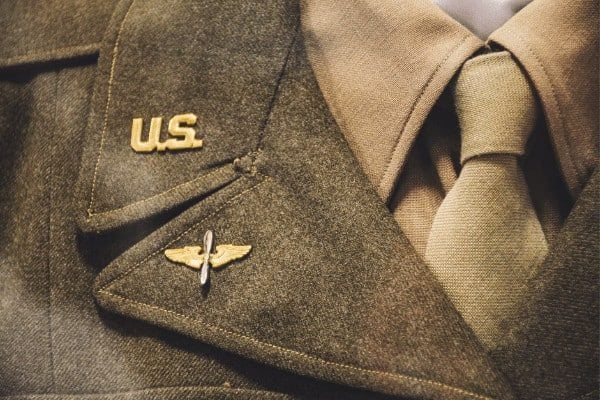
If you had family who later served in the Air Force, you may find some of their older military records in the Army archives.
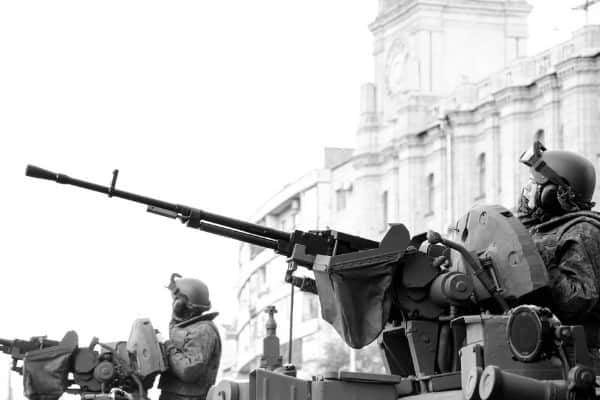
Military service records are the easiest way to find general information about someone who served.
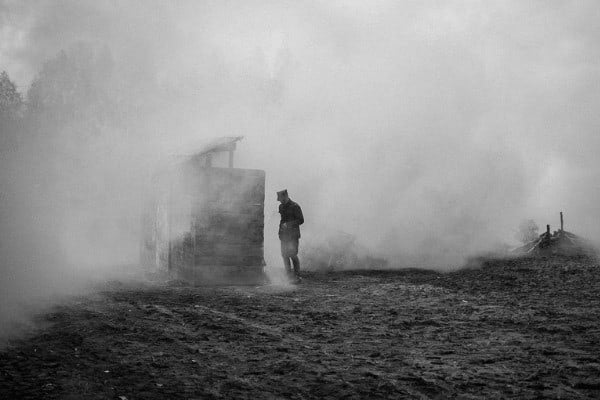
You can also find military records online for those who served in other countries.
Casualty and Burial Records
Discovering casualty records and casualty lists
Records of casualties and burials of those who served during World War 2 are kept by the National Archives and Records administration. Lists of those who died are organized by the branch they served under, as well as their home state and county.
The names of those who served under the Navy, Marine Corps, and Coast Guard can be found through this link here. The list of those who served under the Army and the branch that would become the Air Force can be found here.
Understanding the information recorded in these records
The list of wartime casualties for the Navy, Marines, and Coast Guard are organized by state, territory, and where they were stationed. This list includes those who died in combat, those who went missing, those wounded, those who died in prison camps, and any released prisoners of war. The list for the casualties of the Army and Air Force is organized similarly by state, territory, and country of deployment and can include information such as their name, rank, army serial number, and the type of casualty.
Exploring burial and memorial records for fallen soldiers
You may have an ancestor who is buried at one of the World War 1 or World War 2 cemeteries set up overseas by the American Battle Monuments Commision. In this case, you can use their database search tool to find where your ancestor is buried and what type of monument they received.
If your ancestor is buried within the United States, you may be able to find their burial records as part of their service records and any information you may already have. Burial records for casualties are typically kept by the government and are included with other service documents.
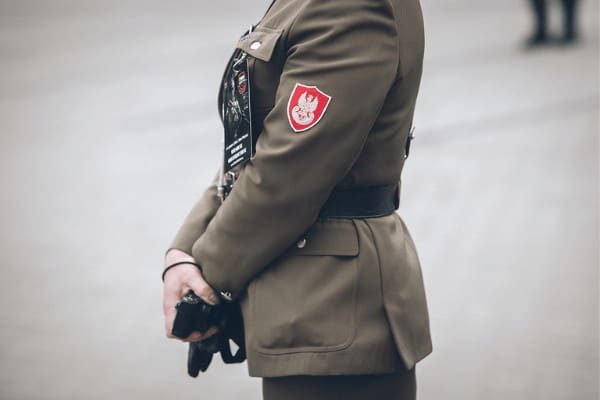
To find records of those who served in other countries, you can contact similar organizations in those regions.
Prisoner of War and Internment Camp Records
Researching prisoner of war records for captured soldiers
Prisoner of war records are typically kept as part of a specific person’s military service documents or unit histories. POW records can also be found through popular genealogy and ancestry research sites, such as Ancestry, or Find My Past.
Keep in mind though that these records describe some of the worst conditions a human can be kept in and probably shouldn’t be looked at by those who may be more sensitive to that type of information due to past trauma or otherwise. Still, these documents can give you great insight into what trials specifically an ancestor had to endure during the war and could give you a new-found respect for your family member.
Exploring internment camp records for civilians affected by the war
Unfortunately, one of the darkest actions done by the US government during World War 2 was the internment of Japanese immigrants and Japanese American citizens in camps across the country. In hindsight, this action is seen as an overt act of racism and prejudice against what many Americans believed to be the enemy, despite the fact that most of the people interned were American citizens.
Because so many Japanese Americans were sent to camps systemically, many descendants of Japanese immigrants can trace their ancestry back to someone who had to spend time in an internment camp. Records can be found via archives.gov on those kept in camps, where you can find their name, year interned, year of birth, as well as the specific camp they were kept at.

Newspaper archives on the web can help you view obituaries when you live far away from the publishing area. You can also view obituaries published in papers that no longer exist.
Understanding the details and significance of these records
These types of documents are important because they give a unique insight into the darker aspects of war, not typically shown off or glorified by movies or monuments. World War 2 was a major international conflict which impacted the lives of many people, not just soldiers or world powers.
It’s important to look back on the mistakes of the past in order to make sure these events don’t repeat themselves in the future, thus causing more harm. Especially in the case of the Japanese American internment camps, some actions even by the allied powers were done in desperation and should not be repeated in the future.

Ancestry records are easy to find while you're sitting at home or relaxing in your favorite coffee shop.

Ancestry records can help you find details about loved ones who served in World War 2 that you can share with future generations.

Track any person who served in the Navy and find out more about them through Navy records.
Oral Histories and Interviews
Utilizing oral histories and interviews with World War II veterans or survivors
Reading words on a page or a screen can give you some insight as to what living through the second World War was like, but to have someone who lived through the experiences actually tell you their stories is a whole other level. Sitting down and talking to a former veteran or holocaust survivor or even just a civilian who lived during the time can give you valuable information on what it was like to experience these events in a way that just can’t be captured in text on a page
Unfortunately, the number of those still alive who experienced these events is going down day to day as these people are only getting older. But if you can interview someone who lived during this time and want to hear their story to possibly preserve it for future generations, it can be an eye opening and informative experience.
Techniques for conducting interviews and capturing valuable information
Now more than ever, preserving the stories of those who lived through World War 2 is of the utmost importance. Luckily, video recording and preservation can make it so that future generations can know what this generation faced even long after all of them are gone.
It’s important though to remain patient when doing a written or video interview, and understand that some interviewees may not want to talk about all the trials they faced during the war, as some memories may be too painful to relive. If you are capturing the interview via video recording, remember to keep the camera or other recording device stocked with batteries, memory cards, and anything else you would need to make sure you get the full conversation.
Be prepared to have a conversation with your interviewee and have follow up questions to some of the things they may say. This can lead to a far more interesting and insightful interview, rather than just responses to questions on a sheet of paper.
Preserving and sharing oral histories for future generations
Preservation is important for any historical document, especially the oral histories of those who lived during said events. Luckily, video capture devices and cloud storage makes it easier than ever to make sure future generations have access to this invaluable information.
As mentioned above, if you are recording an interview with a video camera, it’s important to keep a few extra memory cards and batteries on hand in case you fill up space or need just a little more. It would also be wise to save backups to multiple devices, whether that be a home computer, external hard drive, or a cloud storage service.
Safely storing data like this makes sure that even if the camera you used to record said interview breaks or the computer the file is saved to becomes infected with a virus, the video can still be recovered somewhere, and isn’t lost for good. This is solid advice for any video file you intend on preserving, not just interviews of those who lived through major historical events.
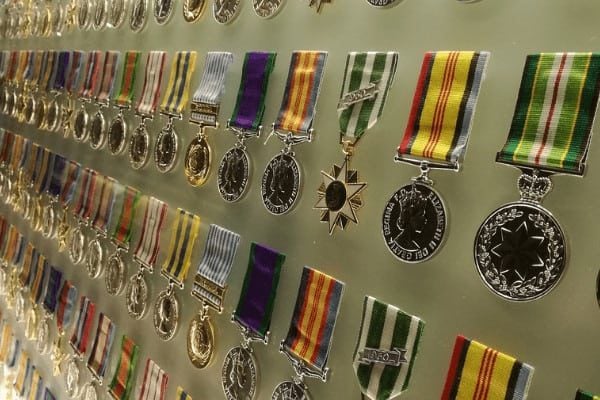
World War 2 records can help you find out if an ancestor received any military awards.
Online Databases and Archives
Exploring online databases and archives that provide access to World War II records
There exists a wealth of information online pertaining to the second world war. One source used extensively in the writing of this piece is archives.gov. Here you kind find all sorts of information, not just on World War 2, but on pretty much all of America’s History, even the founding.
You may also get some information via genealogy services, like Ancestry.com or Find My Past. Keep in mind though that not everything is heavily documented and some records have been lost to time. However, the official archives.gov site is probably the best place to look for and observe various World War 2 documents.
Tips for effective searching and utilizing online platforms
Many sites like archives.gov include search features to make finding specific documents easier, but it really helps if you already have some of the information you would like to explore further. If you want to look up a specific soldier who fought in the war, knowing their service ID, SSN, or branch they served under can help narrow down the results.
Make sure the site you’re looking at is reputable and accurate as well. Some bogus sites can appear legitimate, but provide false or even harmful information. Keep an eye out for odd things like grammar mistakes and an abundance of suspicious ads. Basically, use the same caution you would when exploring pretty much any site online and don’t put any personal information into a less than reputable source.
Beyond Military Records
Supplementary sources for researching World War II experiences
Looking through military records can help you better understand what was going on during World War 2, but supplementary sources, like newspapers, old recordings, and other documents can help you better understand the emotions felt by those experiencing the war, not just the soldiers. The war affected many lives even outside of those serving on the front lines or leading governments.
One of the most famous documents from the war is actually the personal journal of a young girl who had to hide from the Nazis in Amsterdam, that being the Diary of Anne Frank. This piece is a very emotional and well written record of those who suffered the most during the war, and can be an eye opening experience to those who take the time to read it.
Utilizing newspapers, personal correspondence, and other historical documents
Newspapers can give better insight into who civilians handled life during the war. While the fighting was going on, people still had lives to live and opinions on the state of global society. Learning from the mistakes of history can help us better understand and predict our future, so that we don’t make the same mistakes as those who came before us.
You can find many of these documents through a quick web search or by asking your local library. Many will have high quality scans of these records or even a microfilm reader so that you can view them with the highest quality.
Incorporating contextual information to enhance research findings
It’s important to keep in mind that these documents were written nearly a century ago and that some phrases or opinions have not aged well. Remember that not all information on what was going on overseas, particularly regarding the holocaust, was well known to regular American citizens.
When looking at documentation like this, also keep in mind that some sources had biases, even back then, and to research where a piece was published and who may have paid for it to be written, just as you would do any modern piece of media. It may also be a good idea to research the author of the piece, since they might have more similar works and could be a person worth looking into. Journalists were often the target of retaliation if they got too political and some faced trials just as dangerous as those who served.
Preservation and Documentation
Strategies for preserving and documenting World War II records
It’s super important to preserve historical documentation like those created during World War 2, but that can be easier said than done. They can get lost, stolen, burned, ripped up, or even just degrade naturally over time.
If you have some documents you want to preserve, it’s advised that you keep them in a cool, climate controlled area, and keep them out of direct sunlight as much as possible. If you have something you’d like to display, like a certificate or even a photograph, then it would be a good idea to invest in a quality frame with UV protection on the glass.
Be careful when handling documents and wear gloves if you can, as to not tarnish or ruin any of the ink. It’s also important to store them in an acid free environment, like a paper folder, cardboard box, or metal file cabinet.
Organizational techniques for managing research findings and sources
If you come across a wealth of information pertaining to the field you wish to study, it would be wise to practice some sort of organizational tactics so that you can better keep track of and find any documents you need at a moment’s notice. Keeping an alphabetical list of your resources can save an immense amount of time and effort looking for the specific information you need.
If you are keeping track of a lot of historical documents, it may be a good idea to organize everything by date. This would also create a clean and consistent timeline of events, so that you can gain a better understanding as to how all your pieces fit together in the grand scheme of history.
Bookmark any useful websites you find online and use cloud storage when you can. Physical documents can be fragile and not age well, so keeping a digital backup can make it so that you never lose any information.
Digitization and sharing of records for wider accessibility
History is meant to be preserved and shared with others, though the passage of time makes this a difficult tack. Luckily, techniques and technologies exist so that these records can be kept and passed down for generations.
If you have access to a digital scanner, then you can save a digital copy of any document you have and save it to either a cloud storage service or an external storage device, such as a hard drive or USB stick.
Make it so that this information can be easily accessed by others. A local library may have the resources needed to make sure your documents reach a wide audience while still being preserved for years to come.
Additional Resources and References
Recommended books, websites, and resources for further exploration
National archives (website)
University libraries (website)
Docs teach (website)
Apocalypse: The Second World War (documentary)
The War (documentary)
The World at War (documentary)
Hitler: A Biography by Ian Kershaw (book)
Unconditional: The Japanese Surrender in World War 2 by Marc Gallicchio (book)
The Diary of Anne Frank (personal journal)
Quickly and Easily Search Almost Anyone's:

Disclaimer: We rank sites based on our knowledge and experience. Our team visits each site and evaluates each one before placing it online. Though we do accept referrals, we guarantee that the information we share is accurate and that we will only pass on information that we think is helpful to our visitors. The referral fees that we receive go to paying our team and keeping our website operational.
OurPublicRecord.Org is a privately owned and operated website and is NOT affiliated with the US Government or any law enforcement agency.